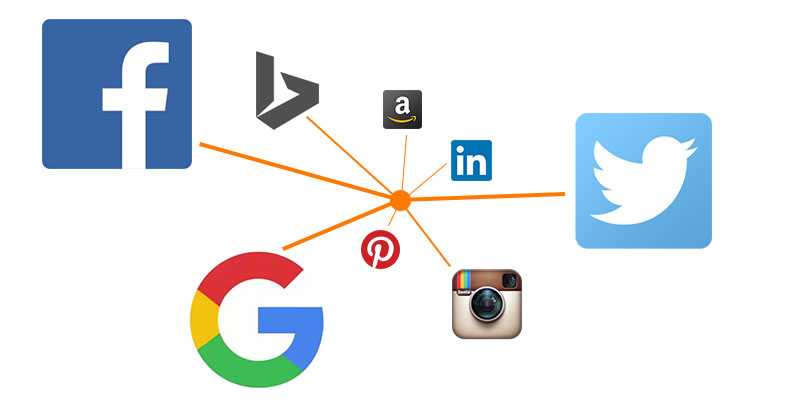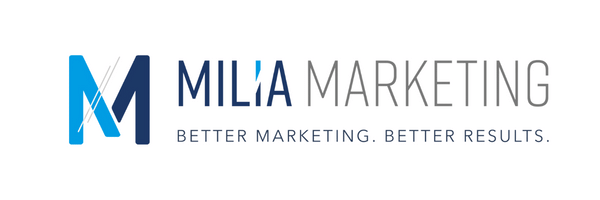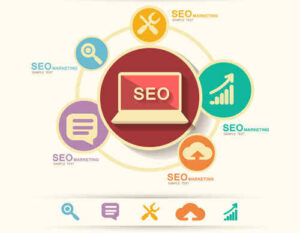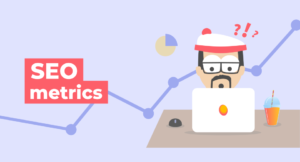As simple as PPC sounds, can you use it while avoiding the most typical errors that might eat into your budget? If not, it’s time to consider PPC management. In this article, we’ll go over all you need to know about ecommerce PPC management. This includes optimizing effective PPC ads that provide the greatest ROI. But first, let’s define PPC management.
PPC management is how a marketer oversees a company’s PPC model plan and budget. An in-house team of marketers performs this. However, sometimes, to help you focus all your energy on the core aspects of your business, it is important to employ the services of a specialized PPC management agency to execute it.
What Is Ecommerce PPC Management?
Ecommerce PPC stands for eCommerce Pay-Per-Click. It’s a type of online advertising used to generate traffic on your websites. This paid advertising aims to direct users to an advertiser’s website where they can purchase an item. Ecommerce PPC management is the practice of managing and controlling a company’s PPC ad.
To ensure that you are not wasting all your marketing dollars on strategies that don’t work, here are 10 Most common PPC mistakes you must not make.
Is Ecommerce (PPC) Management Important?
PPC is an essential tool for every eCommerce business. It is an excellent complement to long-term techniques like SEO because it produces fast results. PPC marketing is vital to captivate customers via search ads. Your business is mostly virtual, and you’ll need to entice them to your physical store.
Let’s look at some benefits of PPC marketing for eCommerce brands.
1. Low Entry Barrier
Ecommerce startups always have a low marketing budget. PPC campaigns are a simple way to get into digital marketing since it takes less time, effort, and money. When adequately managed, PPC ad campaigns may provide a greater ROI for small firms. Also, it brings enormous value to those that already have a bigger marketing budget.
2. Targets The Right Audience
A/B testing allows you to target the perfect audience. When someone opens an ad copy, it is always deliberate and never by chance. It shows that they have progressed farther down the buyer’s funnel. Once a company identifies its target audience groups, it can tailor its marketing to match its online activity.
Furthermore, eCommerce PPC campaigns give advertisers more control over their adverts. This is because they can pick when and where it appears—giving them a wide range of options for targeting an audience interested in an offer.
3. Enhance Search Engine Optimization
PPC campaigns will aid in the long-term SEO strategy of every eCommerce brand. A/B testing is a popular PPC strategy. It is the practice of testing two versions of the same ad. Do this by evaluating the reaction of the target audience. Then, determine which is the most successful.
It reveals which adverts generate the greatest attention in terms of clicks and impressions when done appropriately. These statistics can aid in the development of a marketing plan’s overall SEO strategy.
4. Multiple Campaigns
There are several campaigns to select from when using PPC advertising for goods and services. You can customize campaigns to increase sales or generate leads. You can also tailor it to drive visitors to eCommerce sites, raise product and brand recognition, and encourage app downloads.
Multiple ad kinds, such as paid search, social platforms, local services, and Google Ads, can help you reach your campaign goals.
5. Conversion Tracking
Pay-per-click advertising may be tracked and analyzed in every element, making ROI calculations simple. You can enhance and optimize adverts when measured. For each keyword, PPC provides a lot of useful statistics, like views, clicks, and conversion rates.
They help eCommerce brands discover just what their customers want and what makes them convert at each point of the buying process. Because PPC delivers immediate feedback and results, you can change landing page copy and keywords to achieve great results.
Aside from masterinng the art of creating winning PPC campaigns, you should also find out how to reduce cart abandonment rate in your eCommerce store.
Platforms For PPC campaigns

Your business will benefit from the use of the right PPC platform. With this in mind, we’ve compiled the top PPC campaign platforms.
1. Google Ads
Google Ads is the largest PPC platform. It comprises Google Search, Search Partner Sites, Display Network sites, and Google Shopping. Google Ads include extensive features for monitoring campaigns, analyzing data, and optimizing ad spend — all on the same platform.
Most small and large-scale businesses use Google Ads. It’s also pretty simple to register. You can work on Google Ads using any Google account. Begin with your Google account if you have one.
2. Facebook Ads
Facebook advertisements are priced per mille (CPM). It increases your CTR and reduces your average Cost Per Action (CPA). Facebook ads have a unique feature of being reposted on the newsfeed when people engage in the post. This provides your brand with more exposure! Also, your ads should be compelling to gain a high-quality score, leading to better cost per click (CPC).
3. Instagram Ads
Yes, you can post Instagram ads with Facebook. However, this massive marketing tool deserves its section.
So, what are the benefits of using Instagram? As a PPC campaign platform, it has a greater click-through rate than other social sites. There are over a billion worldwide users, with over 70% under 35. Basically, if you want to reach the younger population, use this platform.
4. Bing Ads/Microsoft Ads
Microsoft Ads, previously called Bing Ads, is a fast-growing search engine network. As stated by Microsoft Advertising, Bing has 137 million unique desktop searches on its network. When you use this platform, e-Commerce SEM (search engine marketing) ads will appear in the search results of Bing, and MSN.
5. LinkedIn Ads
LinkedIn, the platform for professionals, has gained in popularity over the years. This advertising platform is not only for job seekers. It has a global audience of active and educated C-level managers. If you need some PPC tools to attract corporate decision-makers, this is your best choice.
6. Twitter Ads
Twitter remains a prominent ad platform. Also, it’s one of the most powerful eCommerce PPC tools. In fact, most firms use Twitter to advertise their businesses. On Twitter, the ad CTR is a reasonable 1-3%. Not only that, the exposure from a trending hashtag (paid or not) is priceless.
How To Create An Effective PPC Management Strategy
Boost the success of your PPC advertising by using various tactics. These tactics can increase click-through rates, drive purchases, and increase customer loyalty. Below are the most effective PPC strategies:
1. Identify Your Objectives
Before implementing any ads, you must first define what you want your PPC campaign to achieve. What type of return on ad spend (ROAS) do you want to achieve? As an online store, your primary aim is to boost sales. So, it’s a good idea to focus your PPC efforts on search ads and Google Shopping ads.
2. Enhance Your Click-through Rate
Click-through rate refers to individuals who view your ad but didn’t click on it. The first step in driving a lead through the sales funnel is to get clicks. To increase your CTR, invest time optimizing your text and ads to persuade more customers to click.
Also, track the various reactions to your advertisement using Pay-per-click platforms to see which message generates the most click-through rates.
3. Select Long-tail Keywords
The keyword you select for your PPC ads serves as the foundation for your ad campaigns. Target relevant keywords related to your business and avoid broad keywords. Also, focus on specific keywords that are commonly used in user searches. Include long-tailed keywords that show specific search queries made into search engines.
In addition, use tools like keyword planner for keyword research. Create ad groups, so you can combine related keywords in a single ad group. This will help in creating relevant ads for potential customers.
4. Negative Keywords
Negative keywords are phrases you don’t want to show up when users search. It prevents you from paying for advertising that displays irrelevant search terms. So, if you add the phrase to your negative keyword list, Google will not send the ad to people seeking a different product.
5. Optimize Your Landing Pages
The purpose of PPC advertising for many eCommerce businesses is to generate leads for their website. The new leads will bounce off your site and reject your adverts if your pages aren’t optimized. Hence, provide clear, relevant information. Use images and videos to sell your goods.
The platform that your eCommerce website is built on can greatly influence the reactions your visitors will give when they land on your site. This is why we have created an article on Woocommerce Vs. Shopify, Which One Is Better For Your eCommerce Store.
Why Hire PPC Management Companies For Ecommerce?

Running a successful ad campaign entails much more than just ads. Are you marketing to the right audience? Is your website optimized? There is a great deal to learn and accomplish. That’s why it is better to have your Google Ads managed by a PPC management company.
Here are the reasons you need PPC management services from an expert PPC management agency like Milia Marketing.
1. Higher ROI
Getting the most out of your advertising budget requires a great deal of talent and experience. That’s why PPC specialists understand all the strategies to make sure your ads get the most clicks for the least amount of money you’re willing to pay.
2. Your Google Ads Account Will Get Attention
Most store owners do not have the time to handle a PPC advertising account successfully. You need to set up a realistic advertising strategy and keywords effectively. You also need to optimize the campaign occasionally to achieve lasting success. A digital agency has the time and resources to offer your ad account the attention it needs. A digital marketing agency does the following:
- Negative keyword research
- Re-targeting
- Automated bidding strategies
- Internet marketing campaigns
- Unique ad schedule
- Test Ad copy and many more!
3. Detailed Reporting
A marketing agency creates thorough reports. It’s a time-consuming procedure that involves combining data from many platforms and sources, such as Google Ads, Google Analytics, Google Search Console, Google My Business, social network accounts, and other marketing services. They also set up conversion tracking. As a result, you can see how engaged your customers are and how much it costs to acquire them.
Conclusion
That concludes the comprehensive guide to eCommerce PPC management. You’ll run a profitable pay-per-click advertisement in no time if you follow the guidelines above.
Contact Millia Marketing right now for help if you’re unsure where to begin or if you’re having trouble with particular parts of pay-per-click management. We’d be delighted to help you get started and achieve all your business goals.











